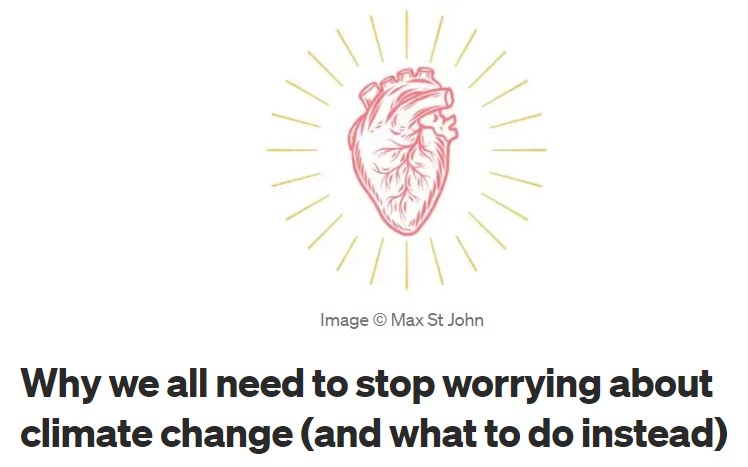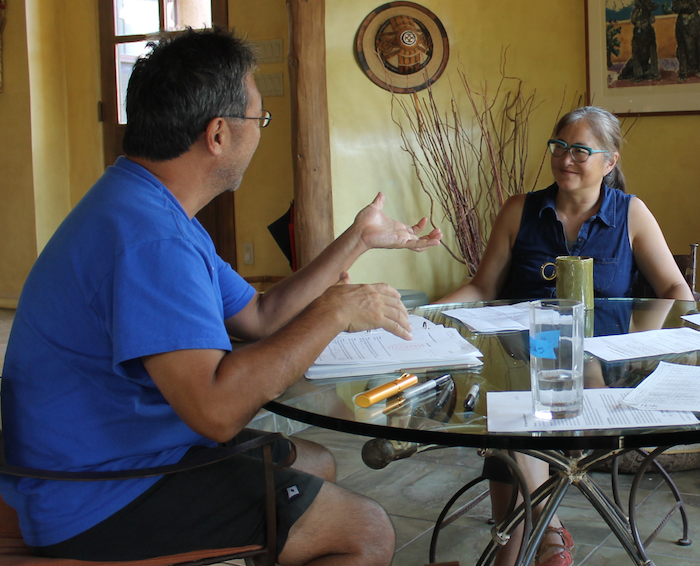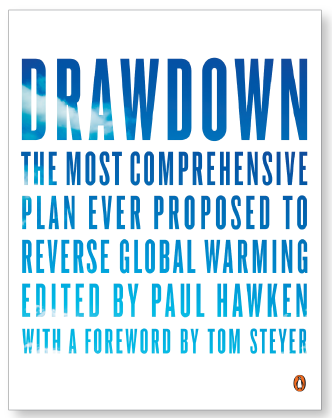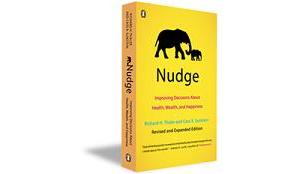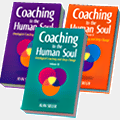Why worrying is the worst thing you can do about climate change…
I really enjoyed this Max St John Medium article on why worrying is the worst thing you can do about climate change. He’s done a great job of pulling apart some very common thought patterns:
Here are a couple of quotes I particularly liked:
Things that present a threat trigger us into a stressed state. When we feel helpless in the face of that threat, everything gets much worse for us.
In this stressed state we change physiologically — we become more problem-focused and look for other people or things to blame.
This is a function of our evolutionary development. In more precarious times it’s been critical in keeping us alive but in this instance it’s not helping.
When we enter this state we are incapable of thinking creatively or compassionately. We look for quick fixes, easy solutions and bad guys.
We also want to consume more. We crave salt, sugar, fat, simple carbs. We’re not hungry it’s just that our bodies are gearing up for the fight or the flight.
And as a result of these changes, in this state none of us are fit to act wisely. We haven’t got a hope of addressing complex problems or creating a future fit for everyone.
Max St John – Why we all need to stop worrying about climate change (and what to do instead)
This particularly struck home:
We’re being fed — and feeding each other— a lie.
The lie is not that we won’t have to radically change the way we live, or that many people (some of the most vulnerable) will experience severe economic hardship and loss.
The lie is that the future has to be worse than the present from the perspective of human experience.
The lie is that letting go of our current way of living is a bad thing.
How about we dismantle that lie?
Max St John – Why we all need to stop worrying about climate change (and what to do instead)
What else can you do instead?
The consumption system that delivers the products and services we use every day is largely 1-way and seriously destructive. The upgrade process is full of great career and business opportunities – such as evolving it into a Circular Economy.
So one thing you could do is dive into the free resources of The Circular Design Guide put together by IDEO in conjunction with The Ellen Macarthur Foundation for The Circular Economy.

It’s a whole lot more rewarding – and much better for your physical and mental health – to be part of the solution than get trapped into anxiety and despair.

